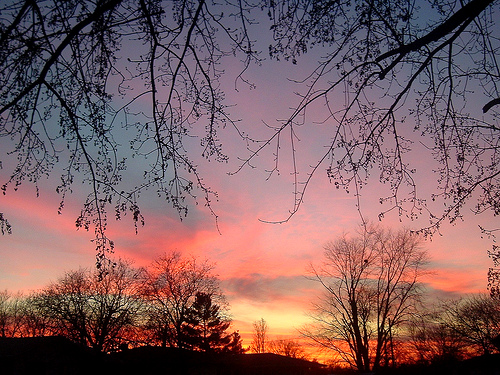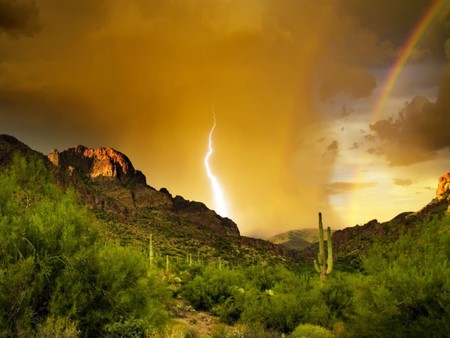A vulture soars by, wheels and circles a few times. The sight of it as the mind enters a meditative state opens the gates of perception to beauty again. Strange how important the insight into beauty is, and how few take time for it.
 The sun shines intermittently. The creek still runs strong, though it has gone down considerably. Suddenly everything is clear. No trace of the dark night of the soul two nights ago remains, an empty memory.
The sun shines intermittently. The creek still runs strong, though it has gone down considerably. Suddenly everything is clear. No trace of the dark night of the soul two nights ago remains, an empty memory.
It’s amazing, but one can be buffeted by the darkest currents in consciousness within oneself, yet the simple act of watching without the watcher quiets the mind, brings peace to the heart, and puts everything in order within the infinite order of wholeness.
A benediction comes when one dies to the me, the ego, to the continuity of psychological memory, which is time.
It takes energy to release energy. It also takes space—a cessation of busyness and activity—to perceive beauty. Most people have time and energy for everything but this, and then wonder why they have so little energy and time for anything.
Is there beauty that’s not in the eye of the beholder? Clearly there is. In fact, the perception of beauty can only be when ‘the eye of the beholder’ is not.
That is, only when the personal filter and separate observer are negated in passive observation is when beauty is seen and felt. It takes great energy to truly see beauty because one has to initiate a process of negation to quiet the mind and clear the heart of impediments to perception.
Beauty is the essence of nature, but it doesn’t require beautiful scenes to be seen and felt, just watching oneself in the mirror of nature until there is no watcher.
When the watcher falls away, and there’s just watching, thoughts and emotions are incinerated in the flame of attention as they arise. The mind naturally and effortlessly quiets, and the heart opens and releases its contents. This quieting and emptying is both the process and prerequisite of the meditative state.
Then there is beauty, which is synonymous with love and creation. This beauty is not just the graceful arc of the wide-winged vulture wheeling on invisible currents of air, as beautiful as that is in itself. Beauty is the portal to timeless perception, which those moments of watching without the watcher bring into being.
This beauty if not forms in time, though the forms of nature, which have taken millions and even billions of years to evolve, reflect beauty in many ways.
When the watcher ends in passive watching, and the mind-as-thought falls effortlessly quiet in intense, undivided and undirected attention, is beauty beyond form and time seen and felt.
The full perception of formless beauty not only makes the mind completely cease its chatter, but it makes the body motionless. A feeling of immensity, awe and reverence becomes so strong that one can’t move for a few seconds. The Greeks called it ‘aesthetic stasis,’ and it’s the earmark of mystical experiencing.
That’s rather a misnomer however, since the phenomenon is neither mystical nor an experience, but rather a state of seeing and being.
If our brains exist for any purpose beyond the utilitarian domain—the rightfully growing sphere of scientific knowledge and the wrongfully accreting dimension of the personal known—it is this, the total perception of beauty, love and creation.
To be nothing as a human is to be everything as a human being.
Martin LeFevre

